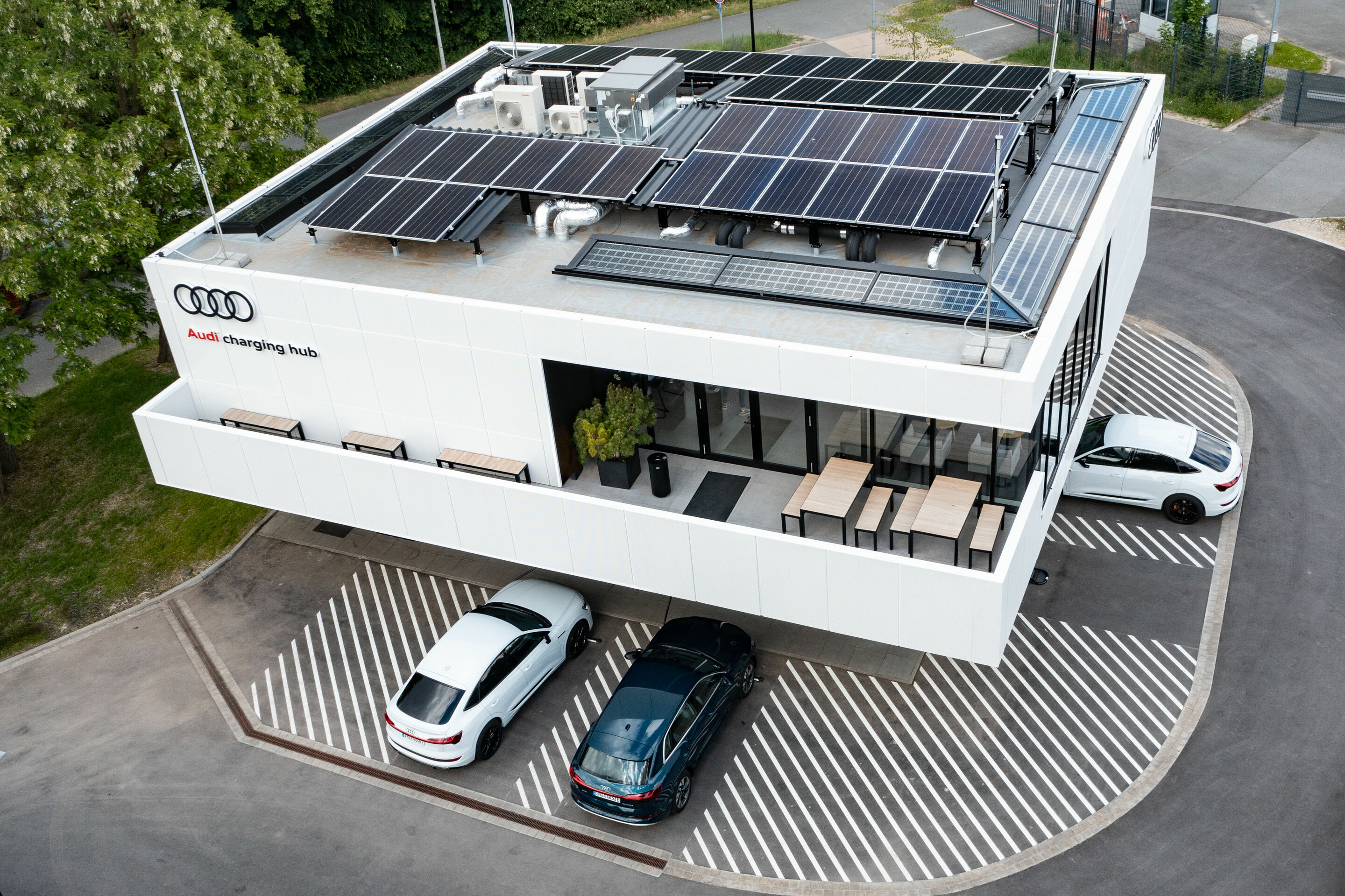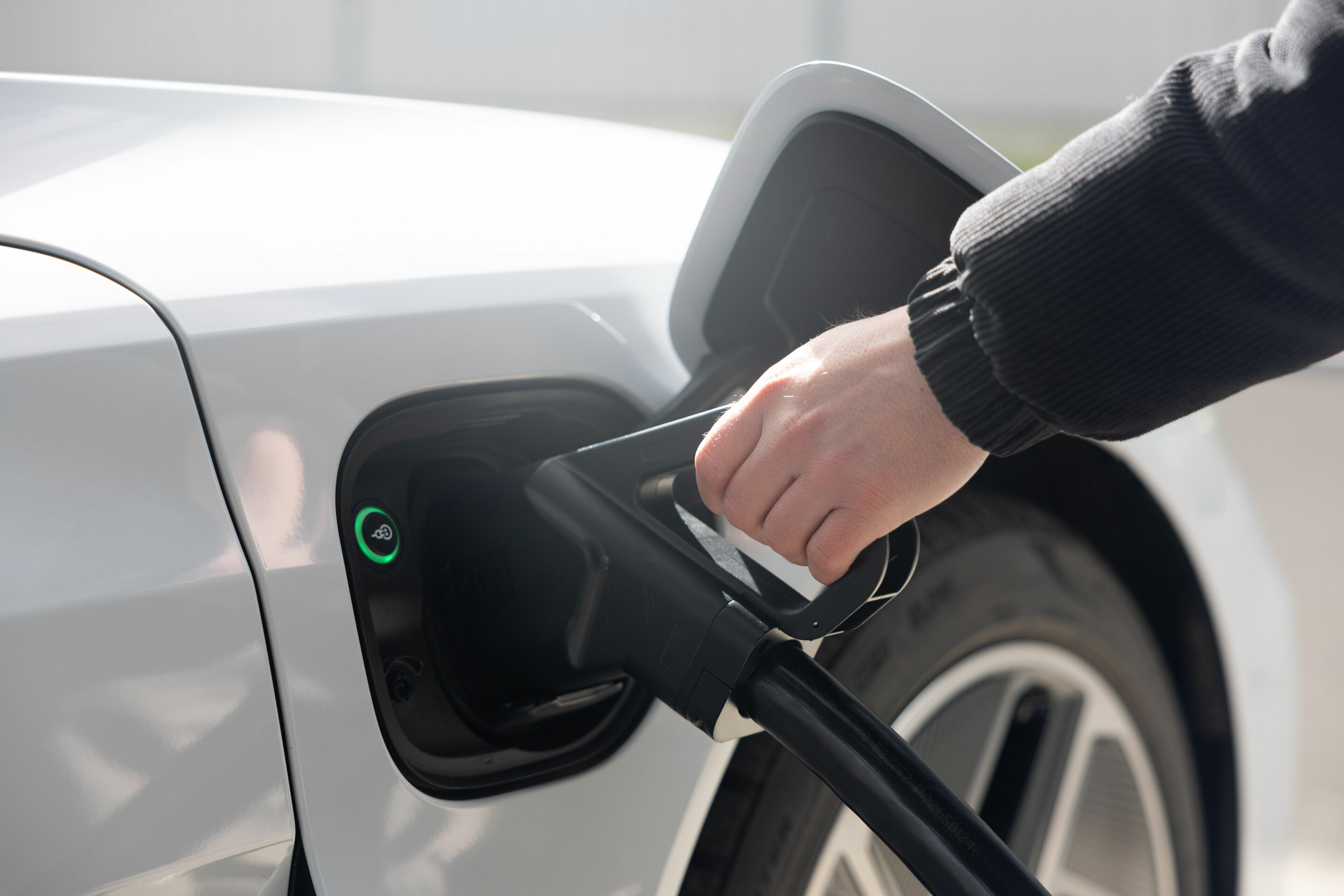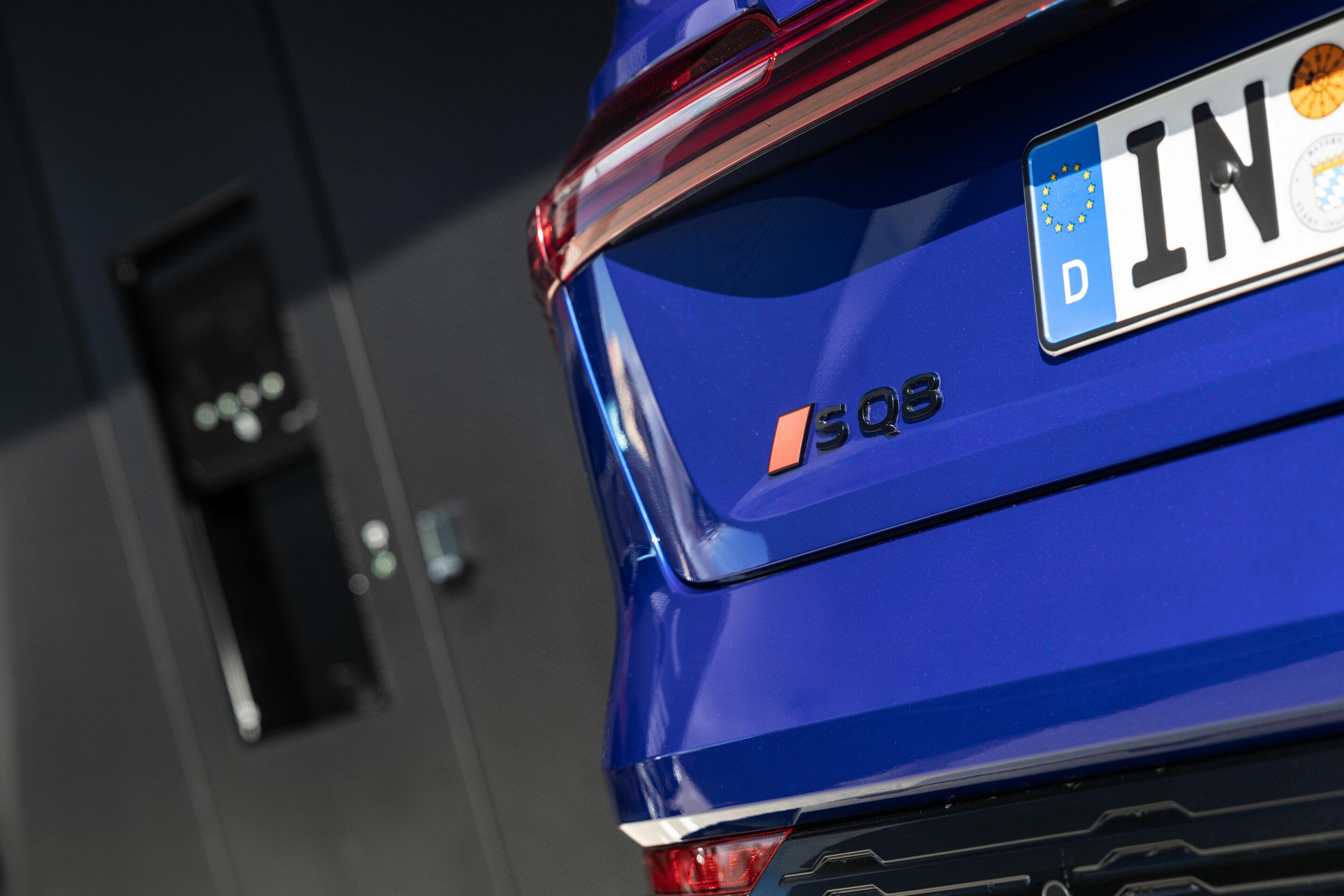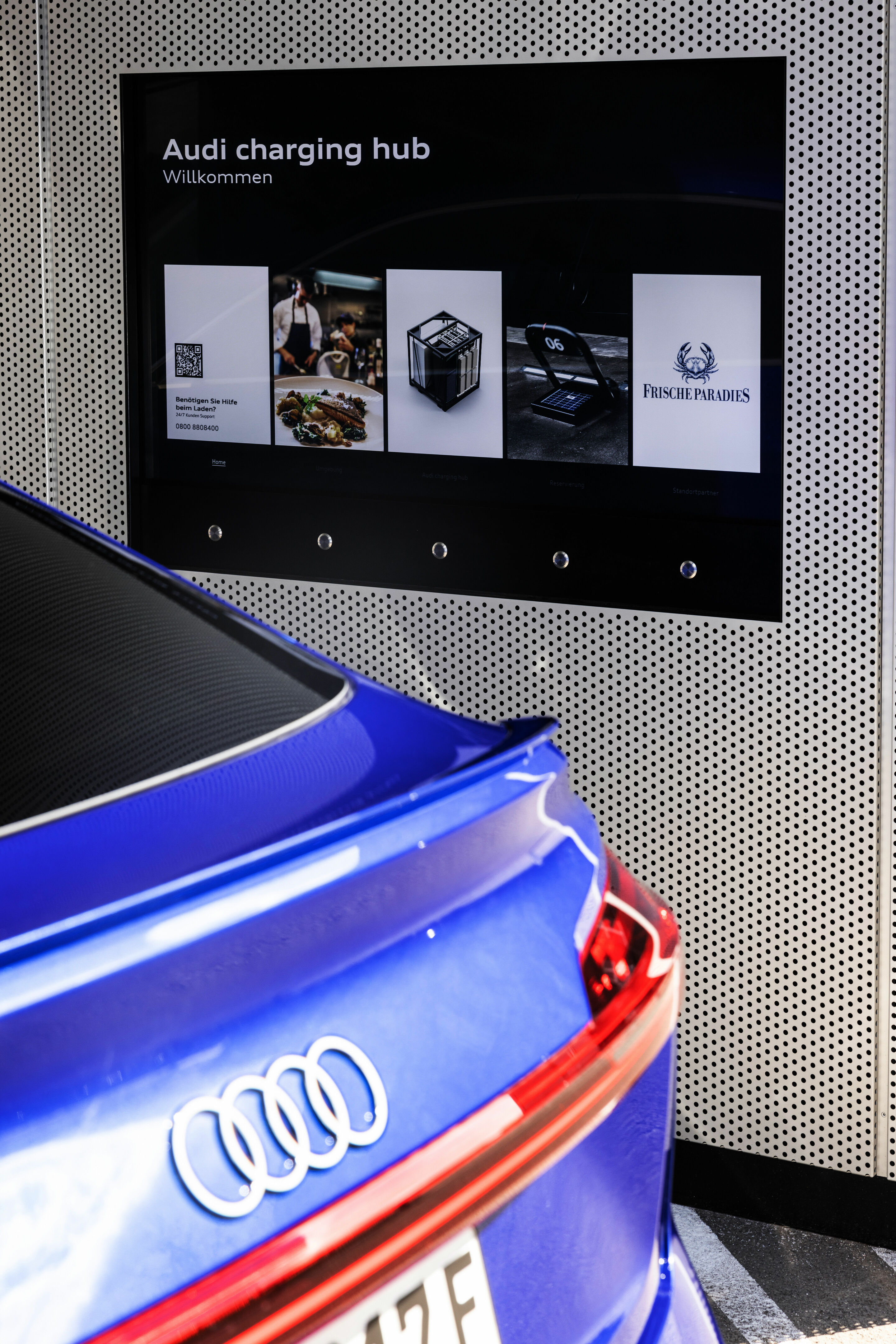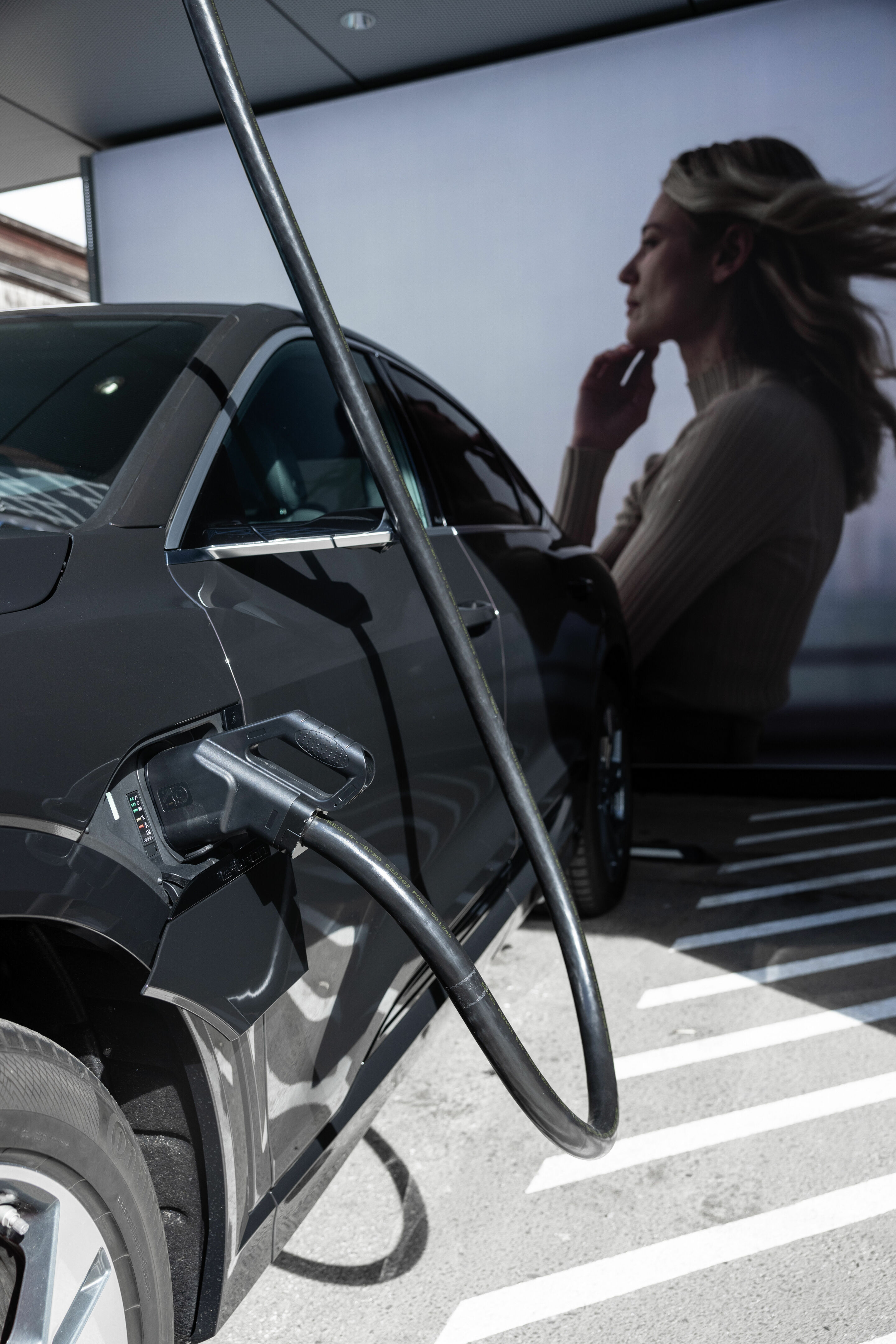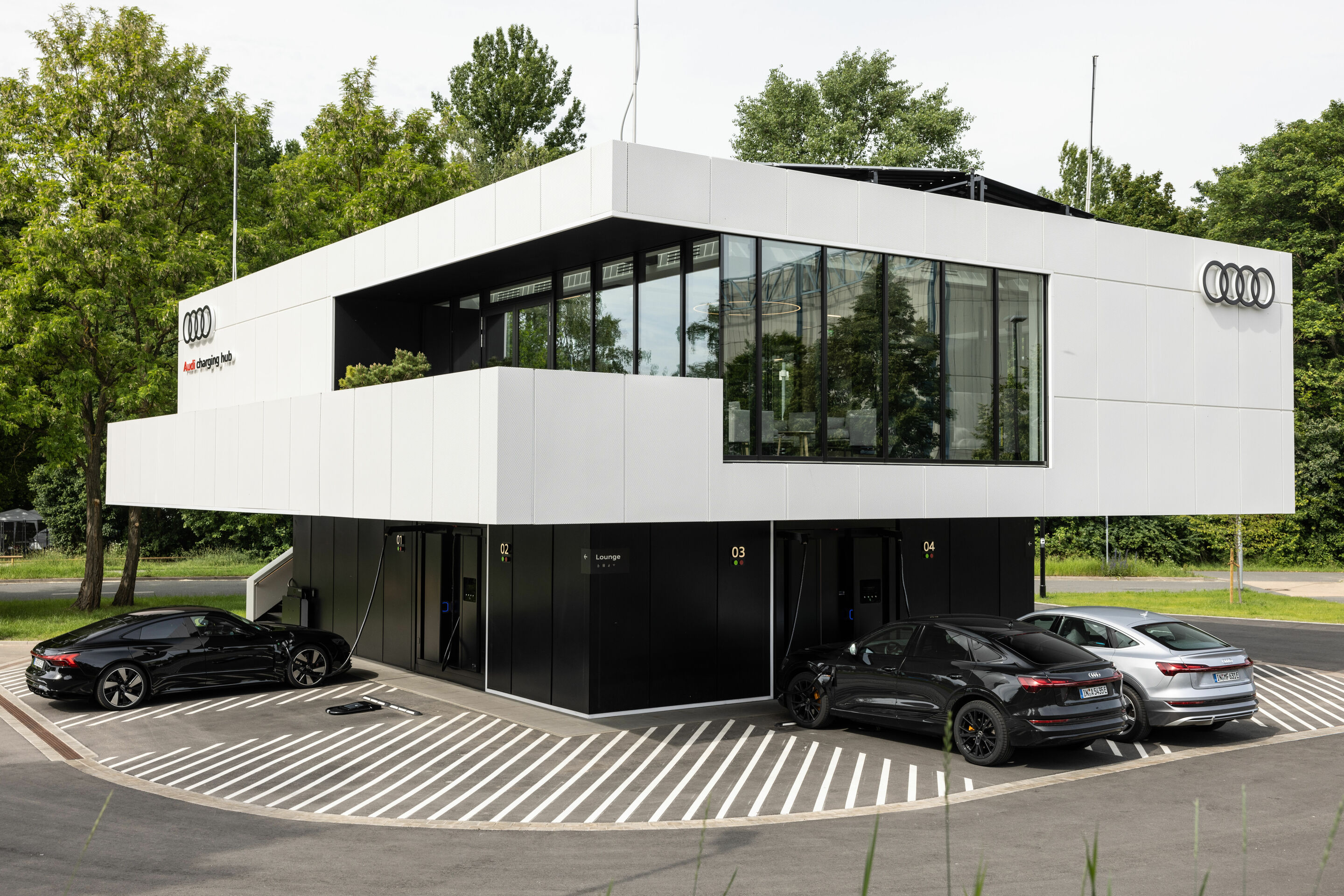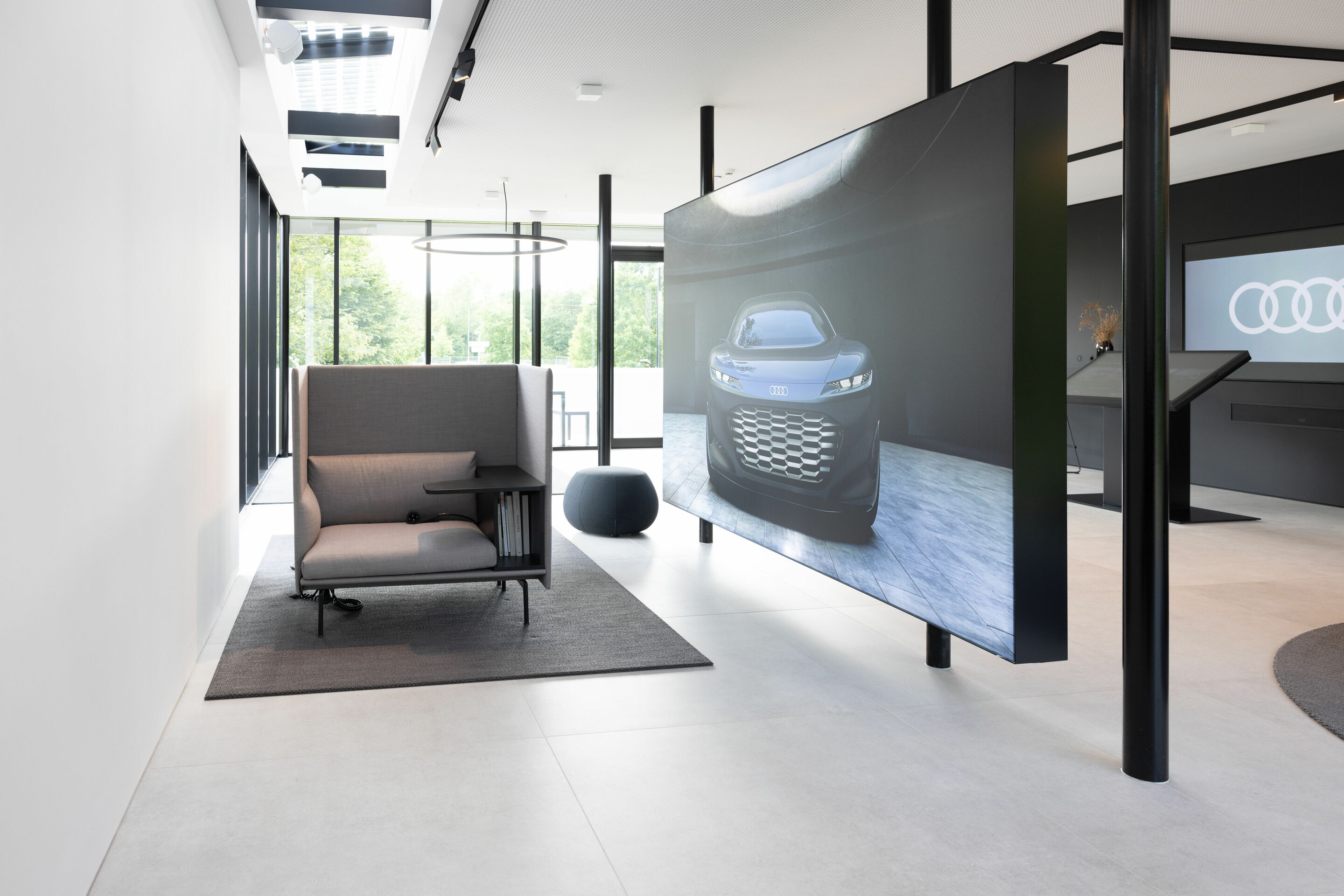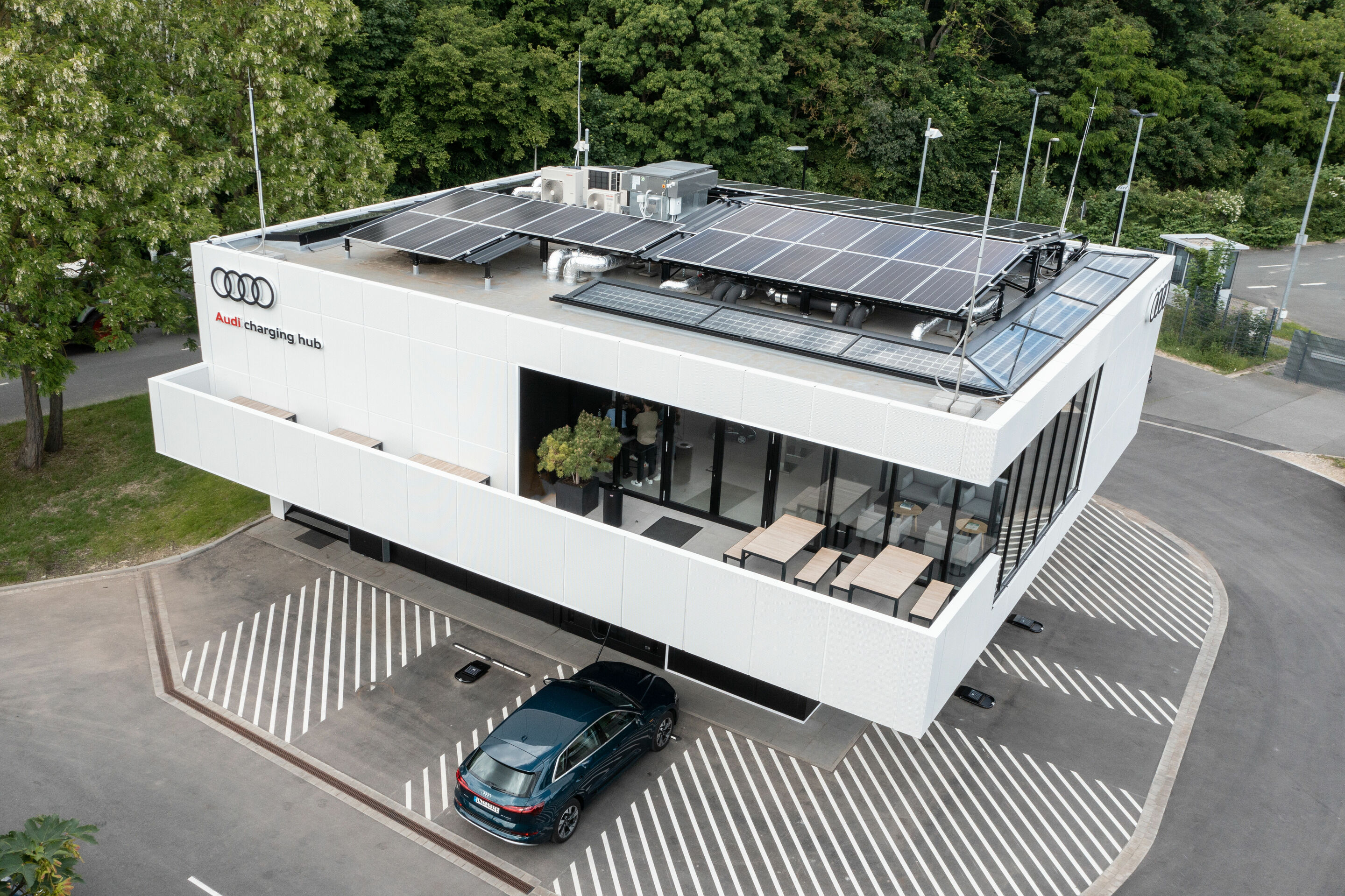Audi continues to roll out charging hub after success of initial pilot phase
- 60 percent of repeat users confirm urban charging concept as alternative to home Wallbox
- Additional pilot site in Zurich to test compact modular concept from the second half of the year
- Regular Audi charging hub stations will be rolled out initially in Salzburg and Berlin starting mid-2024
Feedback following the pilot phase of the Audi charging hub in Nuremberg turned out to be overwhelmingly positive. The fact that repeat customers accounted for some 60 percent of charging sessions confirms the Four Ring’s globally unique, urban charging concept. The Audi charging hub mostly serves urban drivers who aren’t able to charge at home. Starting in the second half of the year, a second compact Audi charging hub pilot site will open in downtown Zurich, followed by sites in Salzburg and Berlin. Additional sites are slated to open in Germany in 2023 and mid-2024.
Between January and the end of April 2022, Audi registered some 3,100 charges at its Nuremberg site during the pilot phase of the world’s first quick-charging station with six reservable high-power charging points, an average of 24 charges at about 800 kWh per day. Additionally, the near 200-square-meter barrier-free lounge that boasts a 40-square-meter terrace above the charging cubes was visited by an average of 35 customers every day, a figure that is on the increase. The comfortable charging and lounge experience, reservable per app and with an attractive catering offering, has garnered overwhelmingly positive feedback from users. Customers expressed overall appreciation of the roofed Audi charging hub that features a convenient swivel-arm charger, a lounge, and a concierge. “The numbers and positive customer feedback demonstrate that our concept of offering flexible, premium quick-charging infrastructure in urban spaces was spot on,” says Audi charging hub project manager Ralph Hollmig. Frequent use was also made of additional services such as the exchange station for micromobility batteries and a grocery delivery service.
Self-sufficient, sustainable charging infrastructure as the foundation
So-called cubes serve as the energy storage system in Nuremberg and at all future Audi charging hub stations. These flexible cube-shaped containers can be assembled and disassembled in short order at existing sites. Power is stored in recycled lithium-ion batteries, known as second-life batteries and taken from dismantled test vehicles. This system means the Audi charging hub’s battery-storage solution brings sustainable quick-charging infrastructure where the electric grid is not enough, operating six HPC charging points with up to 320 kW.
Thanks to the roughly 2.45 MWh of interim storage, the entire Nuremberg site only needs a 200 kW connection to the low-voltage network to continuously fill the storage modules. Nevertheless, up to six electric cars can charge at one time with approximately one megawatt of power. With a green power contract in place, the Audi charging hub only uses energy from sustainable resources, while solar panels on the roof provide up to 30 kW of additional green energy.
Compact version for Zurich’s banking and insurance district
Based on the insights gained in Nuremberg and the positive customer feedback, Audi is opening another version of the modular Audi charging hub system with four roofed charging points at two power cubes in Zurich starting in the second half of the year. The tighter space requirements tailored to suit urban locations are the perfect fit for Zurich’s banking and insurance district. Additional advantages include short prep times for planning and implementation as well as a lack of any need for civil engineering work. An essential component of the adaptable, compact concept is the reworked swivel arm that ensures barrier-free charging of all the cars across the entire width of the individual charging points with up to 320 kW of power. The operating displays at the charging points are height adjustable and clearance between cubes and cars has been designed to accommodate wheelchair users. Additionally, two 55-inch screens draw customers’ attention among other things to the broad service landscape at the hub, which includes food and fitness offerings as well as shopping and e-bike sharing facilities in the direct vicinity. More compact than the site in Nuremberg, the Audi charging hub in Zurich is also based on the same modular design that enables the construction of a variously sized charging hub with or without a lounge. “The system’s modular design lets us react flexibly to on-site conditions,” explains Audi project leader Hollmig.
Ongoing rollout for 2023 and mid-2024 with a focus on Germany
After Zurich, Audi is planning additional Audi charging hub sites for the second half of 2022. Two compact versions, similar to the Zurich site, will open in Berlin and Salzburg later this year. Three additional sites in German metropolises will help meet the increased charging demands in urban spaces starting in 2023. Moreover, Audi is planning to open even more sites in German cities by mid-2024. To this end, the Four Rings are currently on the lookout for attractive locations and on-site partners. Locations close to downtown in particular, ideally with paved surfaces and services in the direct vicinity, are being sought for the ongoing rollout of the concept.
